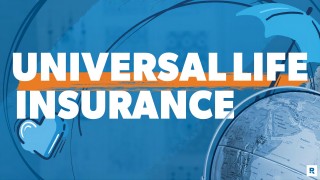Advertisement
Health insurance is an important aspect of your personal finances, and understanding its nuances can help you make informed decisions about your coverage. In today's world, medical costs are skyrocketing and without adequate insurance coverage, a medical emergency could easily deplete your savings or send you into debt. That's where health insurance comes in, as it can help ease the financial burden of unexpected medical expenses.
When purchasing health insurance, it is crucial to consider the type of plan that is right for you. There are two main types of health insurance plans. hmos (health maintenance organizations) and ppo's (preferred provider organizations). hmo's typically have lower monthly premiums, but have more restrictions on choosing a provider. PPOs, on the other hand, offer more flexibility, but tend to have higher premiums.

Another key factor to consider is the coverage offered by your health insurance plan. Most plans will cover preventive care, such as annual physicals and vaccinations, but it is important to make sure that the plan also covers any pre-existing conditions you may have. Also, make sure to check if the plan covers prescription drugs, as some plans may have a restricted formulary or require you to pay more for certain medications.
It is also crucial to consider your budget when choosing a health insurance plan. While it may be tempting to choose the plan with the lowest monthly premium, remember that you will also have to pay deductibles and co-payments for any medical services you receive. Therefore, it is critical to balance monthly premiums with deductibles and co-payments to determine the total cost of the plan.

One way to save money on health insurance is to choose a high-deductible plan that is paired with a health savings account (HSA). HSAs allow you to make pre-tax contributions for medical expenses, and the money can be used tax-free for qualified medical expenses. In addition, some employers may offer funds that match your HSA contributions, providing additional savings.
It is also critical to review your health insurance annually to make sure it is still meeting your needs. Changes in your life, such as a new job or new medical condition, can affect your insurance needs, making any necessary changes to your plan to ensure you have adequate coverage.

In summary, health insurance is an important aspect of your personal finances, and understanding the nuances of health insurance plans can help you make informed decisions about your coverage. When shopping for health insurance, consider the type of plan, the coverage offered and your budget. Also, consider pairing a high-deductible plan with an HSA to save on medical costs. Finally, review your coverage annually to make sure it still meets your needs.
Advertisement
Advertisement
- Previous article
- Proper Use of Credit Cards: Tips for Financial Management!
- Next article
- Something About Credit Cards!
Advertisement
OTHER NEWS

The Houses you Should Avoid When Investing in the United States!
BY Little Grapes

Unveiling the World of Credit Card Bonuses: Finding the Best Offers!
BY Little Grapes

Understanding Universal Life Insurance: A Comprehensive Overview!
BY Wendy

The Best Online Lenders: Making Borrowing Convenient and Accessible!
BY Little Grapes

Unmasking Real Estate Fraud: Types and Solutions!
BY Wendy

Insurance for Adults,These Four Must be Bought!
BY Little Grapes
RECENT NEWS
-

US Stock Market in 2024: A Year of Volatility and Uncertainty!
-

Navigating the Path to Retirement: An In-depth Look at US Retirement Savings
-

Turning the Tide: Navigating Through a Denied Homeowner is Insurance Claim!
-

Demystifying Bitcoin
-

Securing and Maintaining High Limit Credit Cards: A Comprehensive Guide!
-

The investment value of men’s watches

 1
1 1
1